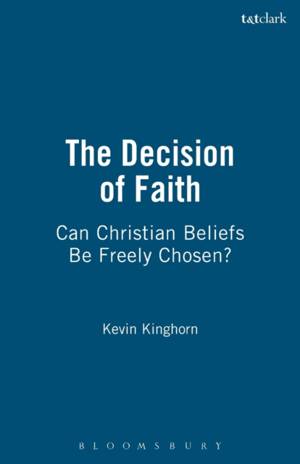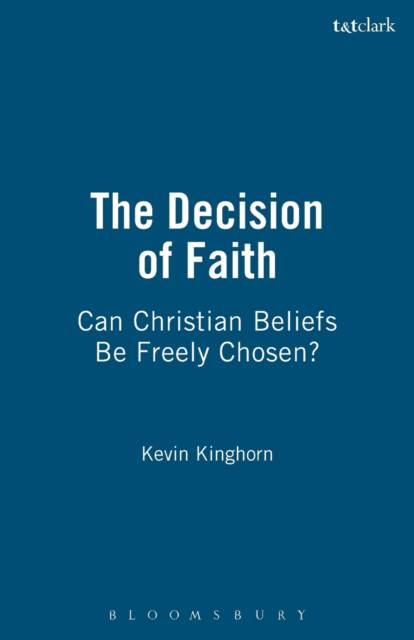
- Retrait gratuit dans votre magasin Club
- 7.000.000 titres dans notre catalogue
- Payer en toute sécurité
- Toujours un magasin près de chez vous
- Retrait gratuit dans votre magasin Club
- 7.000.0000 titres dans notre catalogue
- Payer en toute sécurité
- Toujours un magasin près de chez vous
161,45 €
+ 322 points
Description
Christian theologians have historically described a 'saving faith in God' as containing a fundamental element of 'belief'. However, philosophers present strong arguments exist that we are not capable of freely deciding which beliefs we will hold. Rather, we simply find ourselves believing things as the evidence before us seems to dictate. So, if belief is indeed involuntary, and if certain beliefs are requisite for Christian faith, then how can the matter of one's salvation rest on whether one has freely put one's faith in God? After explaining this objection to the Christian affirmation that faith is a voluntary matter for which God will hold all people morally accountable, this study in philosophical theology explores how the Christian theist might respond to this objection. Kevin Kinghorn uses experimental studies within the psychological literature on self-deception to make sense of the Christian idea of 'spiritual blindness'; and argues that whether or not a person wilfully contributes to self-deception will hinge on decisions he or she makes either to embrace or avoid the truth as he or she sees it. Kinghorn then attempts to show that decisions of this type - more specifically, decisions to embrace or avoid the truth about God, wherever the truth lies - are ultimately more fundamental to the kind of relationship with God commended by the Christian religion than is the question of what a person believes. Kinghorn's conclusion is that the Christian theist can indeed rebut the objection pending against him or her, but only if he or she adopts Kinghorn's own account of the nature of faith, which provides a sharper distinction between faith and belief than is generally found in accounts of faith within the Christian tradition.
Spécifications
Parties prenantes
- Auteur(s) :
- Editeur:
Contenu
- Nombre de pages :
- 208
- Langue:
- Anglais
Caractéristiques
- EAN:
- 9780567030689
- Date de parution :
- 01-12-05
- Format:
- Livre broché
- Format numérique:
- Trade paperback (VS)
- Dimensions :
- 137 mm x 213 mm
- Poids :
- 249 g

Les avis
Nous publions uniquement les avis qui respectent les conditions requises. Consultez nos conditions pour les avis.






